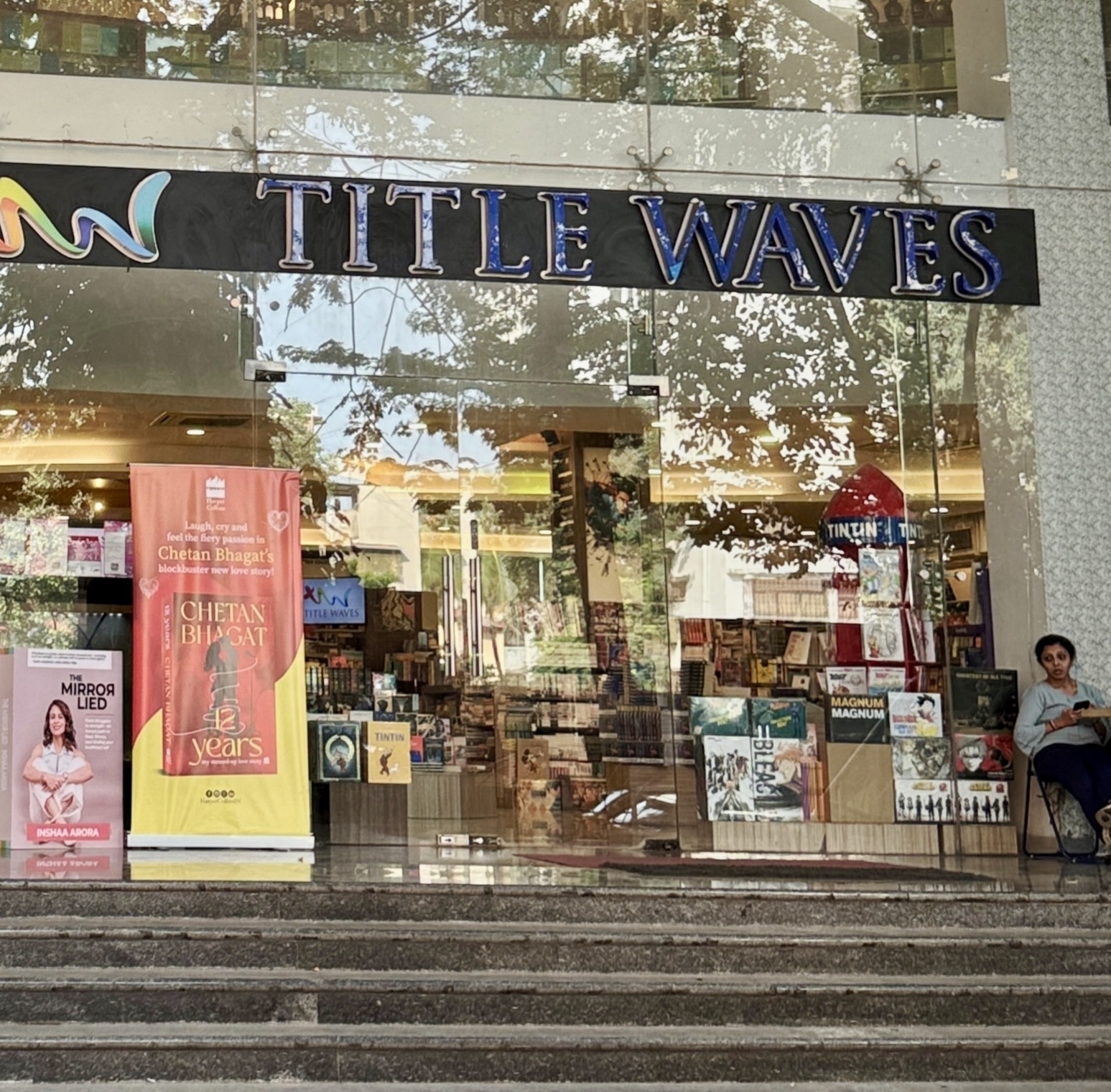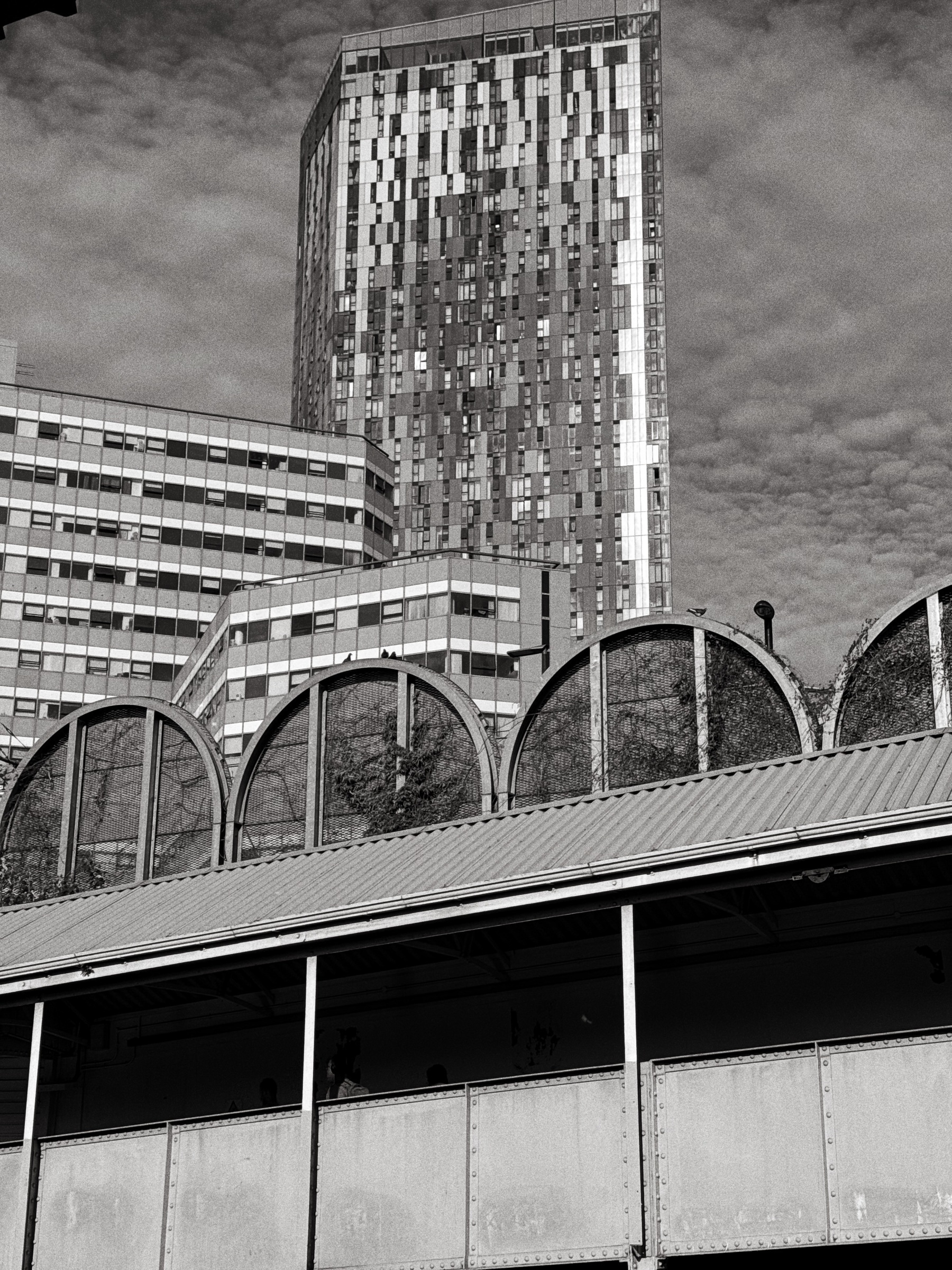Sankalp Bharat 2025
Last Friday, I moderated the opening plenary of the Sankalp Bharat 2025 to explore the next phase of transformation of Indian agriculture. We didn’t just discuss problems but mapped the big shifts required for Indian agriculture over the next decade.
Here are four things we all agreed we must work towards:
Tech led transformation: Leveraging AI and digital infrastructure is critical to democratising access to finance and markets for smallholder farmers.
Climate resilience: The shift towards climate-smart farming and decarbonised value chains is not just an environmental necessity but a driver for long term economic stability.
Access to affordable capital: Indian farmers and farm enterprises need access to affordable capital and insurance products. We need to leverage our regional rural banks, agriculture financing institutions to unlock more capital and risk mitigation instruments.
Collaborative impact: Real change requires deep synergy between agtech innovators, investors, and policymakers to solve for scale and sustainability.

The post Sankalp Bharat 2025 appeared first on Santosh.
RESTORE 2025

The Economics of Restoration is complicated. And, the context specific nature of interventions make it even more difficult to have commercial capital flow in these interventions for scale. But restoration of our land and food system is critical and cannot be de-prioritized just because our existing frameworks of pricing and financing are unable to do justice to them.
India’s restoration needs a dedicated institution that owns this agenda and builds the required capabilities and takes responsibility of mobilizing and channelizing capital to this space.
Above are the key points of my contribution on the panel at RESTORE 2025. Very happy to see that we are having more dedicated conversation and convening on Restoration.
The post RESTORE 2025 appeared first on Santosh.
Irrespective of all the techno-optimism, if we see all the countries updated climate goals, we are set for 2.3-2.5 degree hotter planet by the end of this century, even if we are able to meet these goals.

Finished reading: Siddhartha (English) by Hermann Hesse 📚
timesofindia.indiatimes.com/toi-plus/…
Definitional changes directly determine conservation outcomes. We must proceed with utmost care—especially when defining natural resources or issues with serious implications for ecosystem and biodiversity protection.
Beyond Debt: How the USD 125 Billion Tropical Fund Redefines Climate Finance for Forest Conservation
Our forests are essential for maintaining Earth’s climate balance, as they absorb around 16 billion metric tonnes of CO₂ annually (gross removals) and store over 860 billion metric tonnes of carbon. They also provide crucial ecosystem services, supporting the water, air, and food systems on which life depends.
Yet these services are highly undervalued in economic systems. According to recent analysis from the Chinese Academy of Environmental Planning, global ecosystem services, predominantly provided by forests and wetlands—are valued at an average of USD 155 trillion per year (2024 estimate), more than eight times current global GDP. For forests specifically, ecosystem services (excluding timber and carbon) are valued at approximately USD 7.5-8 trillion annually.
Today, tropical forests contribute approximately 30-35% of global forest carbon sequestration, a drastic decline from the two-thirds contribution recorded three decades ago. This shift reflects accelerating deforestation and degradation rates. Notably, of the world’s three largest tropical rainforests: the Amazon River Basin, the Congo River Basin, and the Southeast Asian rainforests, only the Congo Basin remains a robust net carbon sink. The Amazon approaches a critical tipping point toward net carbon emissions, while Southeast Asia has already transitioned to a net carbon source due to persistent deforestation.
We are losing tropical forests at an alarming rate. Recent global data indicates deforestation of approximately 10-11 million hectares annually, with nearly 95% occurring in the tropics. However, this is partially offset by natural forest regeneration, resulting in a net loss of approximately 4-5 million hectares per year globally. Critically, 2024 data shows tropical primary rainforests experienced record losses of 6.7 million hectares (nearly double the 2023 rate) driven primarily by fire expansion, at a rate equivalent to 18 football fields per minute.
This destruction and degradation of our forests is the result of fundamental market failure. Tropical forest countries have no economic incentives for conserving and protecting the forests which are providing trillions of dollars worth ecosystem services to the world. In contrast, these countries can create significant value through forest extraction (logging, agricultural expansion, mining, etc.) and drive their economic growth. The soon-to-be-operational Tropical Forest Fund aims to change this by providing incentives to these countries for forest conservation.
The Tropical Forest Fund – Catalyzing Market Capital for Climate
The facility is backed by an expected USD 25 billion commitment from the developed countries. This contribution will be used as first-loss capital and credit guarantees to de-risk this facility and achieve an AAA rating and attract USD 100 billion of commercial capital at a very attractive rate (expected to be at 4.5%) for this permanent endowment fund.
A fund manager, most likely one of the leading multilateral DFI, will manage this capital and invest in a diversified portfolio of climate investment, sovereign debts and high yield bonds (with average credit profile of BB+) with an average return of 7.5 percent. This return of 7.5 percent creates a percentage point spread between investment returns and borrowing costs, generating approximately USD 4 billion annually for payment for forest conservation.
Game-changing Innovation in Climate Finance Structure
If it becomes operational, the facility will set some unprecedented benchmarks for nature financing. For the first time we are mobilizing more than USD 100 billion in market capital for forest conservation in a permanent capital structure. Traditional climate finance mechanisms such as the Green Climate Fund remain unreliable due to dependence on donor fund replenishment and their changing budget priorities. With the permanent capital structure it makes the conservation financing more predictable and does not get marred by changing annual budget allocations (and unmet promises) of the climate finance providers as part of their collective responsibility.
Beyond the financial structuring innovation and design this is one of the largest result-based financing (RBF) facilities for any kind of climate interventions. This facility redefines standing forests as an asset class. For the first time, maintaining a forest can generate quantifiable financial returns through direct payments for verified conservation outcomes confirmed via satellite monitoring. Moreover, this facility provides a relief from the typical trap of concessional climate finance which eventually results in an additional debt burden for the countries.
But the most game changing innovation in the design of this facility is the way it is redistributing the risks in climate finance.Traditionally, recipient countries have a double burden: debt servicing obligation and the performance risk of achieving stated climate outcomes. Failure of climate projects means both unmet climate goals and an unserviceable debt obligation. This facility changes this fundamentally by completely transferring the debt servicing risk from the countries to the facility. If the countries are not able to meet the conservation goals, they get reduced payment and there is no debt. But there is still a risk of revenue volatility (uncertainty about how much revenue they will get for their conservation effort) but this is much preferred to the debt servicing risk.
Critical Implementation Questions: Can Market Capital Enable Forest Conservation at Scale?
Despite all of its innovations, the facility has some really questionable assumptions and significant implementation challenges. First, the most concerning issue is the proposed payment structure. With proposed USD 4 per hectare per year payment for forest conservation this facility undercompensates the opportunity cost for forest conservation. Recent studies suggest the opportunity cost of forest conservation to local communities ranges from USD 600-3600 per hectare annually depending on the alternative land uses. The additional annual financing of USD 4 billion being made available for forest conservation is surely moving the sector forward but the USD 4 per hectare per year payment sets the wrong precedent.
The success of the facility depends on how effective the fund manager is in raising the commercial capital and generating investment returns. There is a lot of uncertainty here. If the market does not fare as expected and institutional investors reduce their commitments due to their changing priorities the payout to the countries will reduce substantially.
The Tropical Forest Fund, with all its innovations—permanent capital structure, result-based payments, innovative risk allocation, and leveraging market capital—establishes many precedents. While our rapidly depleting forests cannot be solved by the financial incentives alone by such innovative facilities, it surely emphasises that we need to value our standing forests and incentivise its conservation and protection. This facility is a great starting point to mainstream these innovations and unlock more financing for protecting our forests.
Relevant Resources For Further Reading
- Tropical Forest Fund Official Document
- A Primer on Blended Finance
- FAO Forest Resources Assessment
- Ecosystem Valuation
- The Natural Capital Accounting and Valuation of Ecosystem Services
The post Beyond Debt: How the USD 125 Billion Tropical Fund Redefines Climate Finance for Forest Conservation appeared first on Santosh.

Finished reading: How to Think Like Socrates by Donald J. Robertson 📚
Another stampede! We need to urgently revamp our protocols and preparation of managing crowds at the religious gatherings. Most of these ancient temples and places are not designed for facilitating large crowds and our law-enforcement departments are not equipped enough (both training and resources) to deal with this. Making things worse is our notorious lack of discipline in following rules and protocols. #AndhraPradesh #Stampede
Finally decided to activate the Substack account that I had for quite long. Adding some of my earlier posts and going to use this for the new posts on climate and sustainability. Please do share your Substack handle so that I can follow. open.substack.com/pub/act4c…
#Sustainability #climate
From food security to global leadership
Indian AgTech have huge potential to not only transform Indian agriculture but can also make India a leader in solving the global agriculture and food security challenge. An article that I wrote for Business India..
https://businessindia.co/magazine/guest-column/from-food-security-to-global-leadership
The post From food security to global leadership appeared first on Santosh.
Always good to see independent bookshop thriving. Title Wave, Mumbai. #Mumbai #Bookshops

Clean Cooking and Carbon Markets
The one thematic area that has remained consistent throughout my professional journey is access to clean cooking energy. What started as exploring BoP markets for energy access in 2008 continues even today—as we still have more than 2.1 billion people without access to clean cooking energy.
At Intellecap, we’re working to address the challenge of household air pollution and make clean cooking available for everyone. This report, supported by the International Development Research Centre (IDRC), contributes to building the ecosystem that enables clean cooking for all by guiding key stakeholders in leveraging climate finance for this cause.
The emergence of carbon markets and the climate benefits of switching from polluting cookstoves are promising to change the economics of clean cooking solutions—making them more affordable and accessible for everyone. Read this report to discover how climate finance can enable clean cooking solutions in Africa.
Somewhere in Cooch Behar district .. exploring how communities can leverage Agroforestry practices.


Finished reading: The Secret of Secrets by Dan Brown 📚

Finished reading: The Housemaid: An Absolutely Addictive Psychological Thriller with a Jaw-dropping Twist by Freida McFadden 📚

Finished reading: Rock Paper Scissors: A Novel by Alice Feeney 📚
Ganga Mahal Ghat, Varanasi (2015)

The sky was intriguing and the landscape was soothing! #London #BlackAndWhite #iPhone

Walking around in London. The clean air and the buildings and locations with many fragments of history attached to them is quite inviting to get out and walk.


We need proactive regulations for AI
Why do tech regulations often lag behind innovation?
The critical challenge lies in developing a deep, shared understanding of emerging technologies to foster effective public policy dialogues on safety and fair usage. It’s incredibly encouraging to see industry leaders such as Anthropic CEO Dario Amodei not only acknowledge this gap but actively champion greater transparency and responsible development.
This proactive stance is needed. Ensuring a balanced, ethical, and safe AI future requires a concerted effort from policymakers, innovators, and civil society.
I’d love to hear from those of you working on ethical AI and the policy dimensions of AI: What are your thoughts on bridging this gap between rapid AI advancement and thoughtful regulation?
How can we ensure public policy truly keeps pace?